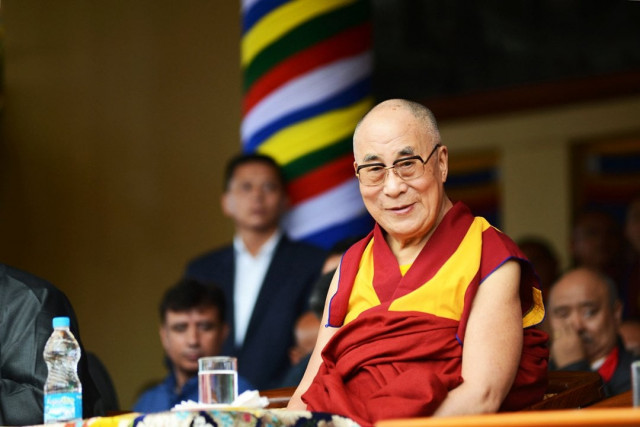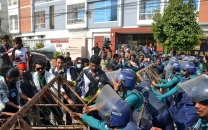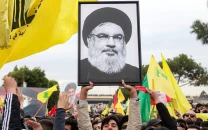Obama to meet Dalai Lama at White House on Wednesday: official
Obama's official schedule indicated that the pair would talk behind closed doors in the Map Room

President Barack Obama will meet the Dalai Lama at the White House on June 15, 2016, in a move likely to enrage China, which sees the exiled Tibetan spiritual leader as a separatist. AFP PHOTO
Obama's official schedule indicated that the pair, who have met several times previously, would talk behind closed doors in the Map Room at 10:15 am (1415 GMT).
The president usually speaks with dignitaries in the Oval Office. Previous encounters with the Dalai Lama have also been private and held outside the Oval Office to avoid risking relations with China.
Dalai Lama urges Myanmar's Suu Kyi to ease Rohingya tension
Ahead of a February 2014 meeting, US officials at the time said the visit was arranged because the Dalai Lama is "an internationally respected religious and cultural leader" -- implying the face-to-face wasn't political.
Beijing has routinely accused Washington of meddling in its domestic affairs after such encounters.
China says the Dalai Lama is seeking to split Tibet from the rest of China and calls him a "wolf in sheep's clothing." But the spiritual leader has pressed more for Tibetan autonomy rather than outright independence.
Many Tibetans say China is repressing their Buddhist religion and culture, and preventing them from benefiting from the region's economic development.
Beijing vigorously lobbies against foreign leaders meeting the Dalai Lama "in any form."
Although Wednesday's meeting will certainly draw China's ire, the concrete consequences remain unclear.
Dalai Lama warns of growing divide among Tibetans
Obama and the Dalai Lama -- both Nobel peace laureates -- appeared in public together for the first time last year at a high-profile prayer breakfast in Washington.
The president called the spiritual leader "a good friend" and described him as "a powerful example of what it means to practice compassion."
The Dalai Lama has lived in exile in India since 1959 after a failed uprising in Tibet.
Last month, he warned of a growing divide among exiled Tibetans, saying morals are "degenerating" in the community, as the leader of its government-in-exile was sworn in at a ceremony in India.
The spiritual leader called on Tibetans to uphold traditions of love and compassion.
China protests at US accusations of abuse of religious groups
The recent race for political office, won by incumbent Lobsang Sangay, a 48-year-old Harvard scholar, was hit by reports of negative campaigning by candidates.



















COMMENTS
Comments are moderated and generally will be posted if they are on-topic and not abusive.
For more information, please see our Comments FAQ